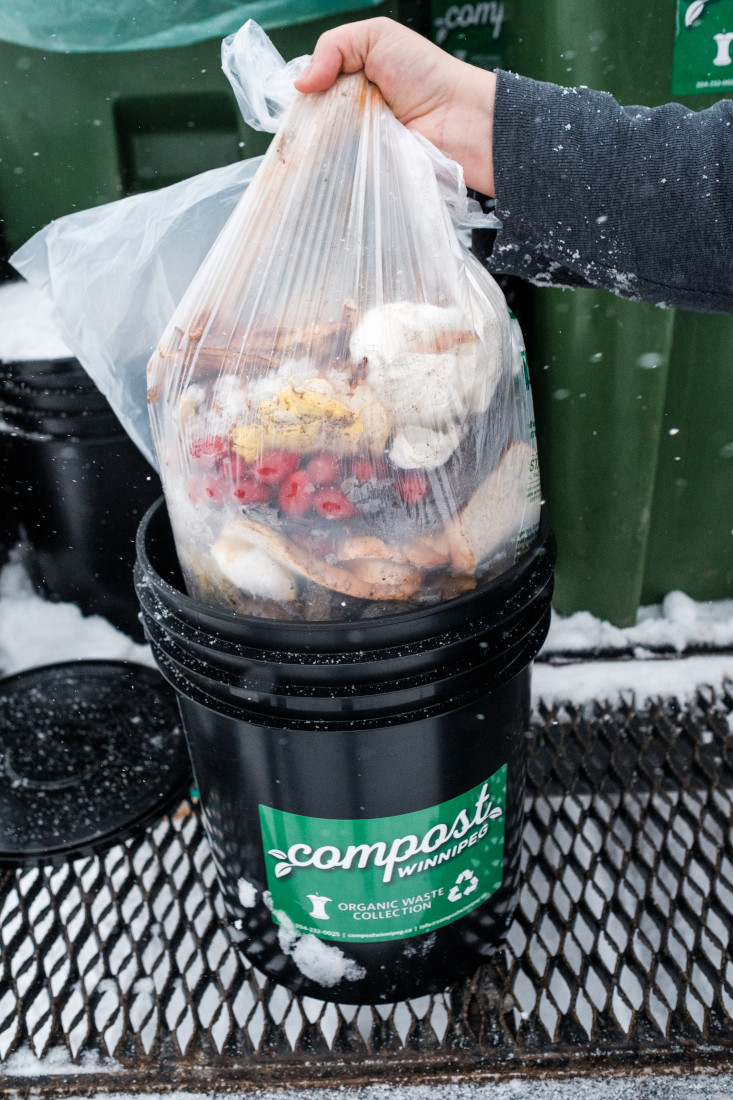Carbon’s ugly cousin: methane
One Green City

Methane is a greenhouse gas 25 times more powerful than carbon dioxide when it comes to trapping heat in the atmosphere. In Winnipeg, Climate Change Connection considers organic waste to be a major source of the city’s greenhouse-gas (GHG) emissions. These emissions could be significantly reduced if the city instated a curbside composting system.
When organic waste is composted, microorganisms break down compounds to produce carbon dioxide, a less harmful GHG than methane. For this to happen, organic waste needs exposure to air, worms and other microscopic creatures. When trash is thrown into a plastic garbage bag, this breakdown can’t happen.
Methane can also be converted into carbon dioxide through gas collections. In 2012, the Brady Landfill introduced a methane-gas collection system, where a compressor draws gas from the landfill, heats the gas to 871º C and releases carbon dioxide instead.
While this does cut down on methane released into the atmosphere, a compost system would have the added benefit of creating a nutrient-dense addition to soil that can help farmers prevent topsoil erosion. Cities can then sell the compost for agricultural purposes, generating a profit while keeping methane out of the atmosphere.
The City of Winnipeg does not currently offer a city-wide compost system. There are private composting services, like Compost Winnipeg, that offer pickup for residents, but it comes at a cost – and not everyone has the extra $35 a month for compost collection.
Additionally, not everyone knows about the service. Whereas recycling has become ubiquitous, with blue bins in almost every classroom, shopping mall and home, compost often remains out of sight and out of mind. By not offering a composting system, the city is (perhaps unintentionally) telling citizens that composting is less important than recycling.
Compost Winnipeg is currently picking up around 70,000 kg of compost a month, but the compost is technically still going to a landfill. Because they are still a fairly small organization, there isn’t enough compost to sell for agricultural purposes. Instead, the compost is used as topsoil to keep trash from blowing away and to act as a biofilter that captures some of the landfill’s greenhouse gas emissions.
While Compost Winnipeg is still performing an important role capturing GHG, the city is losing out on an opportunity to divert more organic waste from heading to a landfill while creating a vital resource for agriculture.
The city is currently halfway through a two-year composting pilot program. According to a survey, nine out of 10 of the participants are in favour of a curbside composting system. But Winnipeg is already behind other provincial capitals across Canada. Given the clear ecological benefits and strong community support, the city should create a city-wide composting system now.
Allyn Lyons is an RRC and U of W Creative Communications grad, an avid reader and a Pisces.
Published in Volume 76, Number 20 of The Uniter (March 10, 2022)






